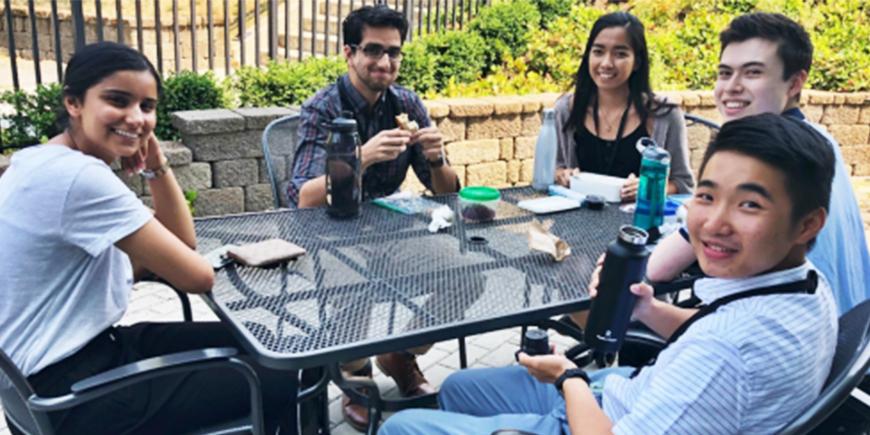
For both of my co-op work terms with the federal government, my main responsibility was to provide support services to information management specialists – a team of talented individuals I loved working with! My coworkers took every small detail into consideration and helped me learn to pay attention to details as well. This was important considering the sensitive nature of the documents we work with, it was imperative that I learned to operate in a confidential and time-efficient manner.
One exercise that helped me excel in my position was to always take notes. Further, it was neccesary that I learned to be attentive and make sure that clients complied with our policies. One small mistake can lead to complications in the future – something I experienced firsthand. However, each problem that I came across was solvable, especially with the guidance of my team leader and IM specialists who always ensured our team exercised discipline and treated our work as not just as the management or records but as an essential service needed for the system to function. With them, I feel like I was always in good hands as I could ask for support and advice whenever needed.
Moving from Paper to an Intelligent Digital World
One of the assignments I worked on during this co-op was a presentation on my ideas regarding artificial intelligence (AI) and how it could be used for administrative work or in this case, information management. The main benefit of AI is that it can eliminate tedious tasks and free up more time for creative ideas and opportunities. Let me use the example of potentially applying AI to IM. Information Management is one step closer to digitizing and ideally, eliminating the time-consuming tasks of vetting files, sorting out loose documents, and filing that come with paperwork. I proposed the idea of infusing AI with our electronic document records management system. Instead of our internal clients dropping off mountains of papers for us to sort through, our clients can simply scan all their documents, upload it to our system, and send it to us for approval. With such a process, we can employ an AI version of our system to categorize and sort through those documents for us. So, instead of having physical copies, everything will be stored in the computer which means less paperwork, making the whole process efficient and cheaper in terms of labour and supplies.
However, as I reflected on the idea of replacing human interaction with artificial intelligence, I realized that the one thing that cannot be automated is the kind of work that requires assisting and caring for others – jobs which involve empathy. Similarly, in the case of IM, the specialists regularly meet with their clients in order to address concerns, come to conclusions, and eventually, amend procedures in order to process the workload in a well-organized manner. This is my favorite part of the job. I like the human interaction with various other units within the building, learning from their unique individual perspectives, struggles and successes. Using my own knowledge and experience to offer our clients ideas and solutions to resolve a problem is a lot more rewarding than directing them to a computer software.
Final Thoughts
The biggest takeaway for me, from this co-op experience, is a clearer idea of what I would like my future job to be. I feel extremely privileged to have worked in a government department for my first co-op as I have both gained expertise in my field, as well as acquired valuable life skills in the process. I hope to continue growing through this co-op and apply my newly-acquired skills to all future endeavors.
Beyond the Blog
-
Interested in learning more about Co-op? Head over to the FASS co-op page!
-
Follow this link to get more information about the Faculty of Criminology.














